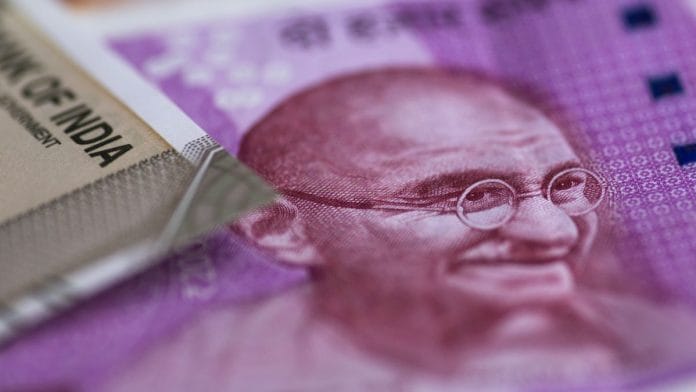New Delhi: The Goods and Services Tax (GST) Council in its meeting Friday sought to provide tax relief to imports of Covid-related items like medical oxygen, oxygen concentrators, ventilators and vaccines, irrespective of whether they are procured free of cost or are paid for.
But this won’t benefit all imports of Covid relief-related items, with individuals and organisations not recognised by states left out of the ambit.
A deadlock also continued over whether tax rates on Covid relief items that are domestically produced should be reduced or left unchanged or if these items should be exempted.
Here’s a closer look at these decisions and debate.
Also read: Stock markets are soaring but so is grief — Indian traders grapple with surreal disconnect
Imports exempted from IGST, but won’t benefit all
The GST Council has agreed to exempt imports of items that play a key part in Covid relief from levy of integrated goods and services tax or IGST till 31 August, irrespective of whether the imports are free of cost or paid for.
Earlier, a 3 May decision had only provided exemption from IGST for imports of these items where no payment was made. The customs duty and health cess were also waived on these imports, effectively ensuring no taxes are levied on their import.
These include medical oxygen, oxygen concentrators and other oxygen storage and transportation equipment, diagnostic markers test kits like D-Dimer and IL-6 and Covid vaccines.
Keeping in mind the rising number of black fungus cases, the import of Amphotericin B to treat it has also been granted exemption from IGST.
However, this relief may not be applicable to individuals importing for their own use or for helping others as all exemptions only apply to imports that are “for donating to the government or on recommendation of state authority to any relief agency”.
At a press conference Friday, Revenue Secretary Tarun Bajaj clarified that NGOs involved in Covid relief work could benefit from the exemption provided that they are recognised by the state governments.
Abhishek Jain, Tax Partner at EY, said the demand was to exempt all Covid related imports from GST. He explained that while certain imports by the state government or agencies appointed by it are exempted, other imports are not exempted from GST.
Also read: 2nd Covid wave impact on economy can be limited to Q1 if cases keep falling, vaccines key: RBI
No consensus on reducing GST on domestically produced items
There was no consensus among the states and the Centre on whether reducing GST rates on domestically produced Covid relief goods or exempting them will be beneficial to the consumer.
Take vaccines, for instance.
The Centre is of the view that the GST levied on vaccines is paid by the Union and state governments as the case may be and the revenue collected flows back to them. There is no impact on the consumers because the Centre and the state governments are vaccinating Indians free of cost.
When it comes to GST paid by private hospitals for vaccines procured by them, there are concerns that any GST relief may not reach the final consumer. This is because all hospitals are charging different prices and it is difficult to monitor if the benefits of no taxes on vaccines are being passed on to the consumer.
At present, vaccines attract a GST of 5 per cent.
There are similar concerns around providing exemptions to other Covid-related items as well. Besides this, any exemption will also cause a disruption in the supply chain making it difficult for manufacturers to claim input tax credit.
The government will appoint a group of ministers, which will look into all these demands for rate cuts or exemptions and present a report by 8 June.
Jain pointed out that the demand was to make domestic Covid supplies zero rated.
“Zero rating is a concept generally used for exports where no GST needs to be paid and still input credit is allowed. However, exemption or a zero rate would disallow input credit,” he said, adding that businesses may be slightly disappointed having to further wait up to 8 June to get a final decision on the additional GST relief for Covid-related activities.
Other relief for taxpayers
The GST Council also provided relief to small taxpayers reeling under the impact of the pandemic. Small taxpayers with an aggregate turnover of less than Rs 5 crore have been given some relief from interest payments and levy of late fee. The deadline for filing tax returns has also been extended for most.
The council also agreed on an amnesty scheme to provide relief to taxpayers from levy of late fees on pending returns going as far back as 2017.
Also read: Indian fuel companies don’t know when demand will pick up again






